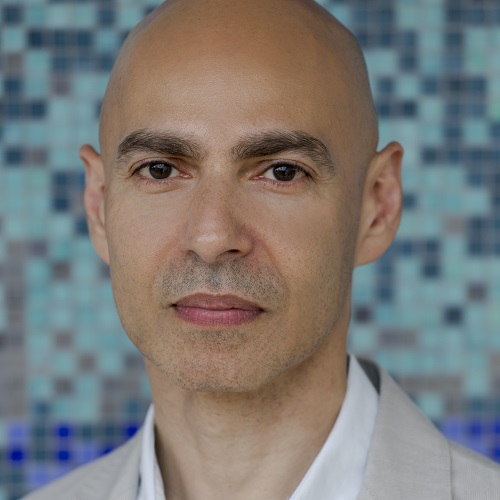Sunday, September 15
12:45pm-1:20pm
What is science for, exactly? In the present, scholars discuss many aims of the sciences: prediction; explanation; understanding; knowledge; truth; and so on. There was a time, though, when our ambitions for science were much bigger. For hundreds of years, humanism and science grew up together – these two traditions were deeply intertwined, and co-evolved. Historically, humanists didn’t just hold that science is a source of knowledge, but that the very aim of science is, in fact, to make the world a better place. Arguably, from a humanist perspective, the fact that people don’t think about science this way anymore is unfortunate. It has contributed to serious, negative consequences for people and the planet. This talk is a rallying cry to humanists to return to our previously ambitious expectations of science, not merely to be a source of knowledge, but to be a source of knowledge that helps us to realize our hopes for the future.
 Anjan Chakravartty is the Appignani Foundation Chair for the Study of Atheism, Humanism, and Secular Ethics at the University of Miami. He is a Guggenheim Fellow and has authored numerous books and articles in the philosophy of science, metaphysics, and epistemology. He taught previously at the Universities of Cambridge, Toronto (as Director of the Institute for the History and Philosophy of Science and Technology), and Notre Dame (as Director of the John J. Reilly Center for Science, Technology, and Values).
Anjan Chakravartty is the Appignani Foundation Chair for the Study of Atheism, Humanism, and Secular Ethics at the University of Miami. He is a Guggenheim Fellow and has authored numerous books and articles in the philosophy of science, metaphysics, and epistemology. He taught previously at the Universities of Cambridge, Toronto (as Director of the Institute for the History and Philosophy of Science and Technology), and Notre Dame (as Director of the John J. Reilly Center for Science, Technology, and Values).
AHA's Virtual Annual Conference | September 14-15, 2024 | American Humanist Association
1821 Jefferson Place NW, Washington, DC 20036 | (800) 837-3792 | conference@americanhumanist.org
Code of Conduct

|
